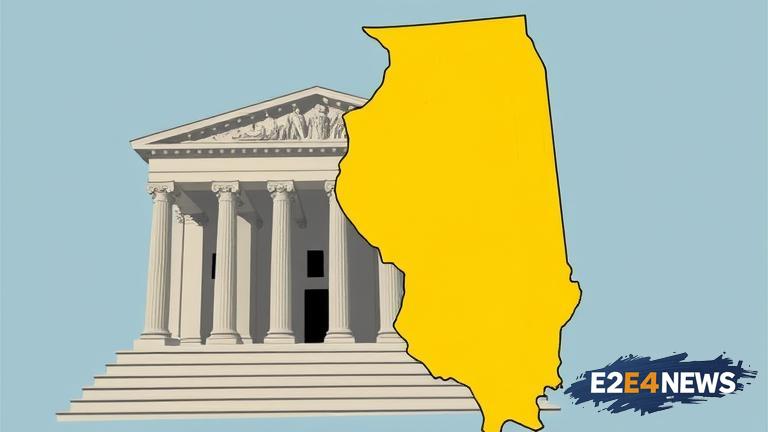The state of Illinois is at risk of losing federal funding due to its recent adoption of a no-cash bail policy. This policy, which aims to reduce the number of people held in jail before trial, has been met with criticism from the Trump administration. In response, President Trump issued an executive order that targets jurisdictions with no-cash bail policies, potentially withholding federal funds from these areas. The order has sparked controversy, with some arguing that it is an overreach of federal authority and others claiming that it is necessary to maintain public safety. Illinois is one of several states that have implemented no-cash bail policies in recent years, citing concerns about racial disparities and economic inequality in the justice system. Proponents of the policy argue that it helps to reduce the number of people held in jail before trial, many of whom are unable to afford bail. However, critics argue that the policy can lead to an increase in crime, as individuals who are released from jail before trial may be more likely to commit additional offenses. The Trump administration has taken a strong stance against no-cash bail policies, with the President arguing that they are ‘soft on crime.’ The executive order issued by Trump is the latest in a series of actions taken by the administration to target jurisdictions with no-cash bail policies. The order has been met with resistance from some lawmakers, who argue that it is an attempt to intimidate and coerce local governments into adopting policies that align with the administration’s views. Despite the controversy, the Trump administration has shown no signs of backing down, with officials arguing that the order is necessary to protect public safety. The potential loss of federal funding could have significant consequences for Illinois, which relies heavily on these funds to support a range of programs and services. The state’s lawmakers are now facing pressure to reconsider the no-cash bail policy, or risk losing out on vital federal funding. However, many lawmakers remain committed to the policy, arguing that it is a necessary step towards creating a more just and equitable justice system. The debate over no-cash bail policies is likely to continue, with the Trump administration’s executive order adding fuel to the fire. As the situation continues to unfold, it remains to be seen whether Illinois will ultimately lose out on federal funding, or if the state will find a way to navigate the controversy and maintain its no-cash bail policy. The issue has sparked a national conversation about the role of cash bail in the justice system, with many arguing that it is a relic of a bygone era. Others argue that cash bail is a necessary tool for ensuring public safety, and that no-cash bail policies are a threat to community well-being. The controversy surrounding no-cash bail policies is complex and multifaceted, with valid arguments on both sides. Ultimately, the decision to adopt or reject no-cash bail policies will depend on a range of factors, including the values and priorities of local communities. As the debate continues, it is likely that we will see a range of different approaches emerge, as states and local governments grapple with the challenges and opportunities presented by no-cash bail policies. The Trump administration’s executive order has added a new layer of complexity to the debate, and it remains to be seen how the situation will unfold in the coming months and years. One thing is certain, however: the issue of no-cash bail policies will continue to be a major point of contention in the national conversation about justice and public safety. The potential consequences of the Trump administration’s executive order are far-reaching, and could have significant implications for states and local governments across the country. As lawmakers and community leaders navigate the controversy, they will be forced to confront difficult questions about the role of cash bail in the justice system, and the potential consequences of adopting no-cash bail policies. The situation in Illinois is just one example of the challenges and opportunities presented by no-cash bail policies, and it is likely that we will see similar debates emerge in other states and local governments in the coming months and years.
